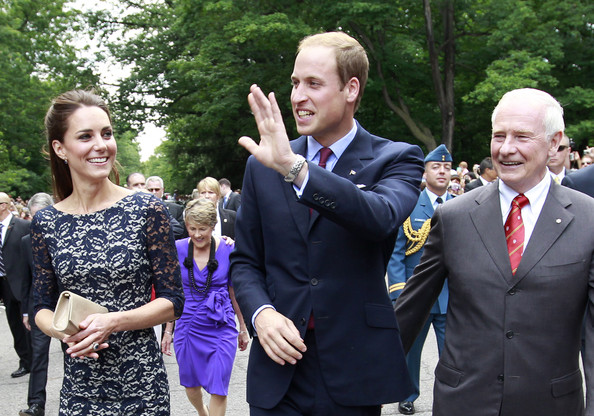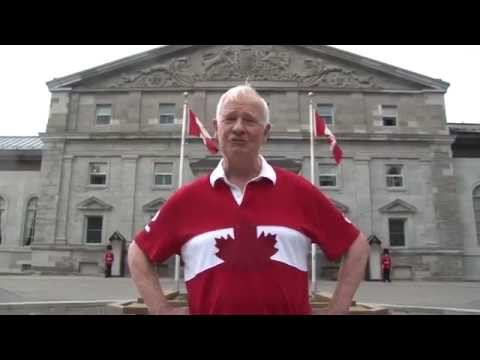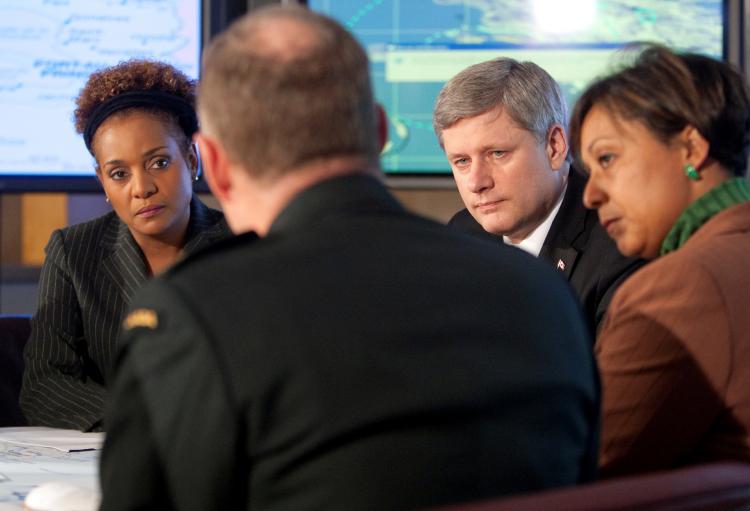
In 2010, Canadians welcomed David Johnston, former president of the University of Waterloo, on his Installation as the Governor General of Canada. Those who had followed His Excellency’s career knew his abundant “people skills”—an affable personality—and deep knowledge of Canada’s constitution and diverse social history. These qualities, combined with a truly global perspective and seasoned political experience at the federal level, were excellent indications that he would faithfully serve The Queen and all Canadians as Governor General. Indeed he has done so, bringing a lively and loyal atmosphere to Rideau Hall.
A graduate of Harvard University in the United States (where he was an All-American hockey player), Cambridge University in the United Kingdom, and Queen’s University, the Governor General has combined his background of corporate and communications law with a career in education and administration. After teaching law at Queen’s University and the University of Toronto, he served as Dean of Law at the University of Western Ontario. From 1979 to 1994 he was as Principal of McGill University, after which he was appointed Principal of the University of Waterloo in 1999.
In addition to having held many academic positions, including chairman of Harvard University’s Board of Overseers, His Excellency has authored over 20 books. As well, he undertook a number of other responsibilities, including chairing the Information Highway Advisory Council, the National Broadband Task Force and the Advisory Council on Online Learning. More recently, he wrote the terms of reference for the Oliphant Inquiry, regarding allegations of impropriety against Prime Minister Brian Mulroney surrounding his business dealings with lobbyist Karlheinz Schreiber.

As Canadians welcomed their new Governor General, David Johnston, they also bid an affectionate farewell to Michaëlle Jean, who departed Rideau Hall at the end of the her five-year period of service for The Queen's representative in Canada. It was a period that twice brought controversial requests for Prorogation of Parliament. Controversy certainly ensued, but the Governor General's discreet handling of the situation meant that any criticism resulting was appropriately directed at the political players and not the vice-regal office.
One significant accomplishment of Mme Jean's time has been the moving and entirely appropriate role she has played in rousing Canadians to concern about the pitiable situation of the people of her birthplace of Haiti, to the point that the prime minister invited the GG to the operational briefing on the crisis. To be sure, this was an unusual way for acknowledging the Crown's right to be informed, to be sure - but one that showed the ceremonial and political sides of the executive in complete harmony. Most Canadians will never forget the press briefing Mme Jean gave later the same day that brought her to tears —“gracious tears” as the Bard would have called them—and an intensity of feeling which, many watching the evening news to consider digging a little deeper into their pockets towards the relief of innocent sufferers, admiring as they did Mme Jean's deflection of questions as to the fate of people she knew —“It's not about me” —in favour of focusing on with the general situation.
Mme Jean has also been a constant friend to the Canadian Forces, and visited troops in Iraq and Afghanistan. She has supported Canadian culture, especially in terms of its Francophone and youthful faces. Similar respect for Aboriginal cultures has been widely appreciated, as well, especially when she deliberately chose to eat seal at an Inuit banquet during one of her visits to Canada's North. And she has been a visible and enthusiastic attender at arts events throughout Canada.

Once out of office, the former Governor General continued her public service as a Special Canadian Envoy to the UN Mission to Haiti. In November 2014, she was elected Secretary-General of La Francophonie.